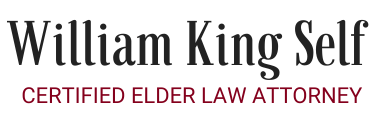Wills
Do I Need A Will?
Your will tells the world how you want to pass your estate on to your beneficiaries. If you don’t have a will, the State has an estate plan for you called “intestate succession.” The laws of intestate succession determine who your property passes to upon your death based on
(a) how your property is owned (titled) and
(b) what heirs you have.
Other property laws impact upon inheritance of property, as well. The results may not at all be how you would have wished to leave your property, so for most people, a will is very important.
Tennessee’s Estate Plan for You
A. Intestate Succession
Anything owned just in your own name is distributed by “intestate succession.” That means if you are:
a. Married, no children. Everything goes to the surviving spouse.
b. Married, with children. Everything goes to the spouse and children in equal shares, but spouse receives not less than one third.
Example: Spouse and one child, each gets half; Spouse and 4 children, the spouse gets one third and all the children split the remaining two-thirds equally. (The children of any deceased child get their parent’s share in equal proportions.)
c. Divorced, with children. Everything goes to the children in equal shares, as above.
d. Unmarried, no children. To the parents, if either is living. If not, to your siblings. For any sibling who dies leaving children, his share goes to his children. If there is no one in any of those categories, then the trail goes up to your grandparents. If there are no living grandparents, then down to your aunts and uncles or to their children, if aunts and uncles are not living.
e. If you have none of the above, then everything goes to the State.
B. Basic Property Law—Jointly Owned Assets
a. Property you own with your spouse (as “tenants by the entireties”) belongs solely to your spouse upon your death, and there is no probate of that asset.
b. Property owned with some other person as joint tenants with right of survivorship automatically passes directly to the surviving owner upon the co-owner’s death without probate of the asset.
C. What can go wrong without a will?
Some possibilities:
1. Simultaneous Death of Spouses
If there is a minor child the property would go direct to the child. The judge would appoint guardians and require court supervision of the assets until the child reached 18 years of age.
2. Spouse and children surviving
Surprisingly, this could create serious problems for the spouse. Property not held jointly as tenants by the entireties is divided among the children and the spouse (see above). This could leave the spouse without enough to live on.
3. Spouse, children from prior marriage
At least two unintended consequences of not having a will:
a. If everything goes to the surviving spouse by way of tenancy by the entireties, the children of the surviving spouse will inherit everything when the step-parent dies. This potentially could cause very hard feelings among the children from the prior marriage.
b. It might also cause a hardship for the spouse (see above), if children are unwilling to help the step-parent.
4. Disabled child
An inheritance to a disabled child might cause him to lose government benefits, including health insurance. With a special needs trust in the will, he would be able to retain those benefits.
5. Dependent relatives
There would be no provision for elderly parents or relatives who may depend on the deceased for assistance.
6. Surviving spouse is on Medicaid in nursing home
An inheritance might cause her to lose Medicaid benefits, and all the assets would be used for her care rather than going to the children or other beneficiaries.

